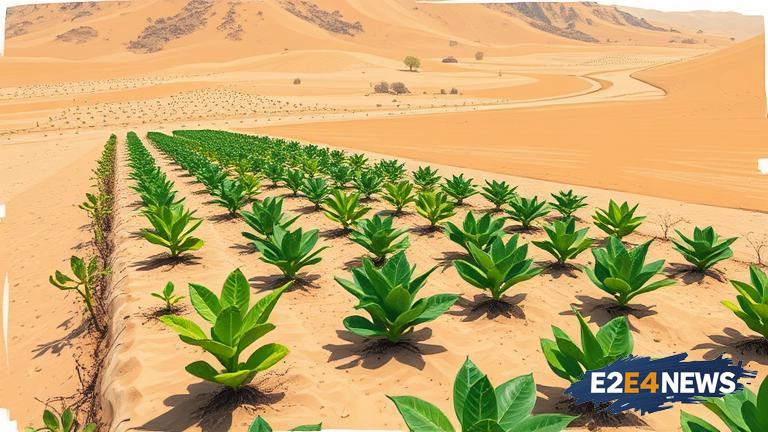Israel has long been a pioneer in agricultural innovation, and its latest endeavors in desert farming are no exception. The country’s agricultural sector has been working tirelessly to develop and implement new techniques to increase crop yields and promote sustainable agriculture in the desert regions. One of the primary focuses of these efforts has been the development of advanced irrigation systems, which enable farmers to conserve water while still maintaining optimal crop growth. Additionally, Israeli researchers have been experimenting with new crop varieties that are specifically bred to thrive in the harsh desert conditions. These innovative approaches have already shown promising results, with some farms reporting significant increases in crop yields. The Israeli government has also been providing support for these initiatives, recognizing the potential for desert farming to contribute to the country’s food security and economic growth. Furthermore, the development of desert farming in Israel is not only beneficial for the country itself but also has the potential to provide valuable insights and technologies to other countries facing similar challenges. The use of advanced technologies such as drones, satellite imaging, and precision agriculture has also been integrated into these desert farming techniques. These technologies enable farmers to monitor and manage their crops more efficiently, reducing waste and optimizing resource allocation. Moreover, the implementation of desert farming in Israel has created new opportunities for employment and economic development in rural areas. The combination of innovative technologies and traditional farming practices has also led to the creation of new and unique crop varieties, which are highly sought after by consumers both domestically and internationally. As the global demand for sustainable and efficient agricultural practices continues to grow, Israel’s desert farming initiatives are poised to play a significant role in shaping the future of agriculture. The country’s expertise in this area has already attracted international attention, with many countries seeking to collaborate and learn from Israel’s experiences. In addition to the economic and environmental benefits, the development of desert farming in Israel also has significant social implications. The creation of new job opportunities and the growth of rural communities have contributed to a more balanced distribution of population and resources. The Israeli government has also implemented policies to support the development of desert farming, including investments in infrastructure and research and development. The long-term goals of these initiatives are not only to increase crop yields but also to promote sustainable agriculture and reduce the country’s reliance on imported produce. As the world grapples with the challenges of climate change, food security, and sustainable development, Israel’s desert farming innovations are an exemplary model of how technology, innovation, and determination can be harnessed to create a more sustainable and food-secure future. The success of these initiatives has also sparked interest in other countries, with many seeking to replicate Israel’s model and adapt it to their own unique environments and challenges. In conclusion, Israel’s desert farming techniques are a testament to the country’s ingenuity and commitment to innovation, and are likely to have a lasting impact on the global agricultural landscape. With its unique combination of advanced technologies, innovative farming practices, and government support, Israel is well on its way to becoming a leader in the field of desert farming. As the demand for sustainable and efficient agricultural practices continues to grow, Israel’s expertise in this area is likely to be in high demand, and the country is poised to play a significant role in shaping the future of agriculture. The development of desert farming in Israel is a shining example of how innovation and determination can be used to overcome even the most daunting challenges, and is an inspiration to countries around the world.
